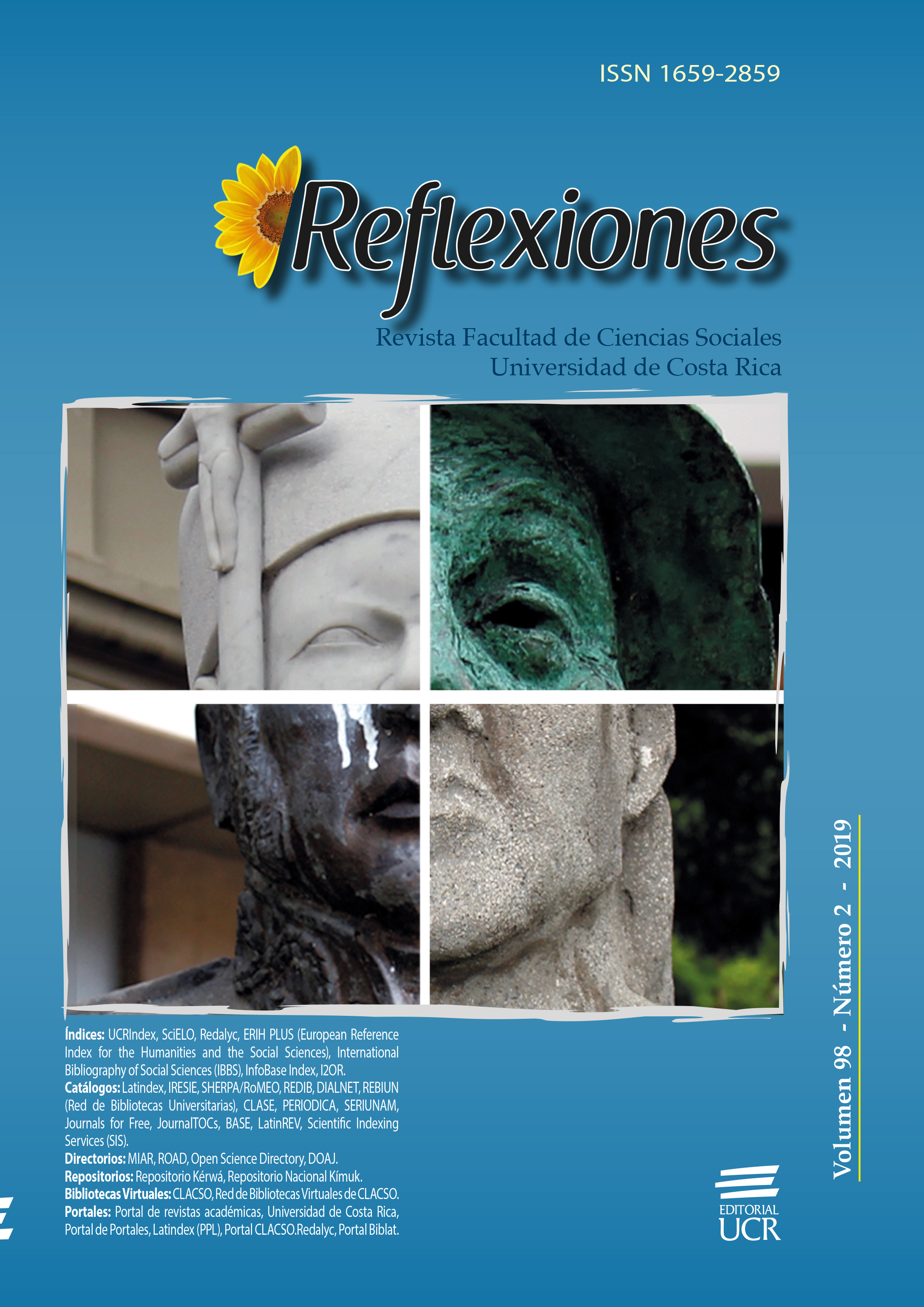Abstract
The article aims to perform an analytical review on the composition of the curricular structure at the level of secondary education in Costa Rica. The analysis is contextualized in key aspects of the educational policies promulgated during the last two decades and, in turn, a critical reflection is developed around it, based on approaches of UNESCO and other diverse specialized bibliography. The relevance of the study is to analyze the relevance of the current curricular structure of the Costa Rican educational project, considering the diverse training needs existing in the country, according to geographical locations and their productive characteristics, as well as their respective sociocultural identities. It is concluded that the current Costa Rican educational project presents a standardized rigidity, because its educational offer is aimed at training and training for employability in the labor market of neoclassical or neoliberal economics. Consequently, the educational project is exclusive, inequitable and limits compliance by guaranteeing equal opportunities for all the different student populations of the country. An in-depth reform of said project is required, in order to make it effectively flexible, inclusive, pertinent, significant and socioculturally contextualized.
References
Consejo Superior de Educación. 1994. Política educativa hacia el Siglo XXI. San José, Costa Rica: Ministerio de Educación Pública.
Consejo Superior de Educación. 2008. El Centro Educativo de Calidad como eje de la Educación Costarricense. San José, Costa Rica: Ministerio de Educación Pública.
Delors, Jacques, s. f. La educación encierra un tesoro. París: UNESCO. http://www.unesco.org/education/pdf/DELORS_S.PDF
Francis Salazar, Susan. 2010. «La estructura curricular en la secundaria costarricense (tercer ciclo y el ciclo diversificado): características principales y desafíos». En: Programa Estado de la Nación. 2010. Tercer Informe Estado de la Educación. San José, Costa Rica: Programa Estado de la Nación. http://www.siteal.iipe.unesco.org/sites/default/files/crc_-_informe_de_estructura_curricular_secundaria.pdf
Ministerio de Educación Pública. 2015. Educar para una Nueva Ciudadanía. Fundamentación Pedagógica de la Transformación Curricular. San José, Costa Rica: Ministerio de Educación Pública.
Muñoz, Vernor. 2009. El mar entre la niebla. El camino de la educación hacia los derechos humanos. San José, Costa Rica: Luna Híbrida. http://www.budrich.de/budrich-intern/El-mar-entre-la-niebla.pdf
Nussbaum, Martha. 1997. Justicia poética. La imaginación literaria y la vida pública. Barcelona, España: Editorial Andrés Bello Española.
Nussbaum, Martha. 2010. Sin fines de lucro. Por qué la democracia necesita de las humanidades. Buenos Aires, Argentina: Katz Editores
Nussbaum, Martha. 2012. Crear capacidades. Propuesta para el desarrollo humano. Barcelona, España: Paidós. http://www.sanjuan.edu.ar/mesj/LinkClick.aspx?fileticket=FGqK7VNBW4w%3D&tabid=570
Programa Regional de Educación para América Latina y el Caribe (PREALC). 2007. Educación de Calidad para Todos: un asunto de Derechos Humanos. Santiago de Chile, Chile: UNESCO. Recuperado de: http://unesdoc.unesco.org/images/0015/001502/150272s.pdf
Programa Estado de la Nación. 2013. Decimonoveno Informe Estado de la Nación en Desarrollo Humano Sostenible. San José, Costa Rica: Programa Estado de la Nación. http://www.estadonacion.or.cr/files/biblioteca_virtual/019/Cap%203-Estado%20Nacion%2019.pdf
Sen, Amartya. 2000. Desarrollo y libertad. Barcelona, España: Editorial Planeta.

